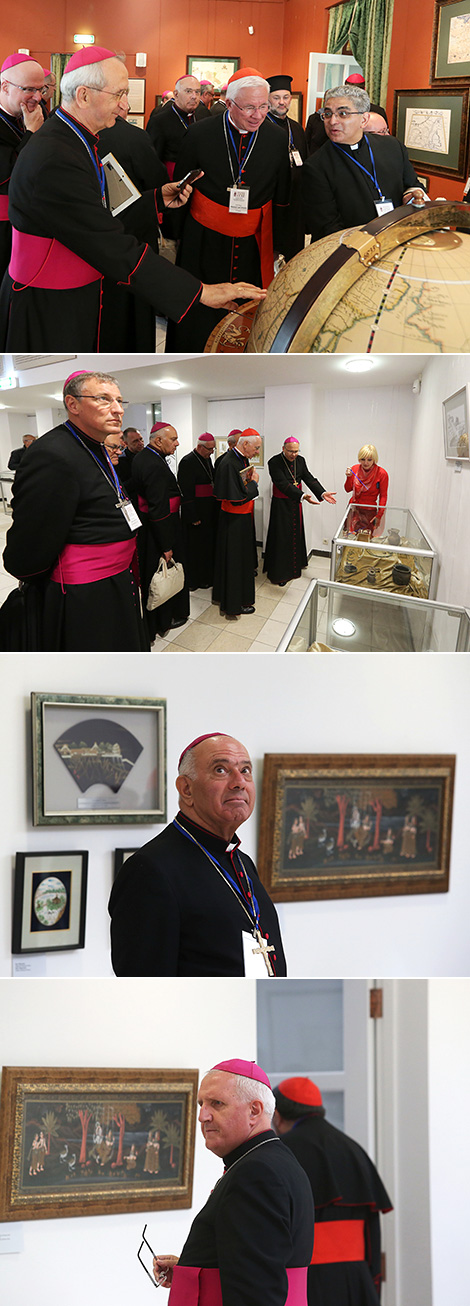Opinions & Interviews
Belarus government satisfied with tight cooperation with church

MINSK, 28 September (BelTA) – In addition to demonstrating openness and readiness for a dialogue the Roman Catholic church in Belarus initiates many events on its own. Deputy Prime Minister of Belarus Vasily Zharko made the statement during the plenary assembly of the Council of European Bishops’ Conferences (CCEE) in Minsk on 28 September, BelTA has learned.
In particular, Vasily Zharko pointed out that Belarus is a European country where representatives of 25 religious denominations live peacefully. “The multireligious structure of the Belarusian society evolved over millennia. It reflects peculiarities of mentality of our nation and all the religions, thus contributing to the creation of a unique image of modern Belarus,” he said.
The official reminded that the Roman Catholic church is the second largest church in Belarus in the number of believers after the Belarusian Orthodox church. In his words, tight cooperation between the state and the church in the moral and patriotic upbringing of people, particularly the younger generation, represents an important component of the social stability in Belarus. It also helps preserve indigenous traits of the Belarusian nation. Vasily Zharko also noted that at present the church takes an active stance in the society and acts as a partner of the state in resolving many problems. “The effectiveness of joint work is determined by the commonality of goals of the state and the church. It is very important that apart from demonstrating its openness and readiness for a dialogue the Catholic church initiates many events on its own,” stressed the official.
 “The religious revival, which has been registered in Belarus over the last few decades, can be kind of an example for other countries. Active cooperation between the state and the church is supported and advocated using the traditional religious denominations as an example. A constructive dialogue of all branches of the government and religious organizations, which help individuals manifest their spiritual potential in practice, is pursued. All of us — the state, the society, and the church — are equally responsible for preserving the greatest values we’ve inherited from the previous generations,” the deputy prime minister is convinced.
“The religious revival, which has been registered in Belarus over the last few decades, can be kind of an example for other countries. Active cooperation between the state and the church is supported and advocated using the traditional religious denominations as an example. A constructive dialogue of all branches of the government and religious organizations, which help individuals manifest their spiritual potential in practice, is pursued. All of us — the state, the society, and the church — are equally responsible for preserving the greatest values we’ve inherited from the previous generations,” the deputy prime minister is convinced.
In turn, Minsk Mayor Andrei Shorets welcomed the guests on behalf of the city administration. “We are pleased and honored to host such an important event. We are doubly pleased by the fact that it takes place in the year of the 950th anniversary of our capital city,” he admitted. Andrei Shorets went on saying: “We are tolerant towards all nations and ethnicities, towards all the religions.” He said he hopes that the foreign guests would enjoy their stay in Minsk.
 Metropolitan of Minsk and Zaslavl, Patriarchal Exarch of All Belarus Pavel addressed participants of the meeting. He noted that bishops from European countries had gathered in Minsk in order to discuss an extremely important topic, which worries the Catholic church, the Orthodox church, and the general public — the future of young people and Europe as a common home.
Metropolitan of Minsk and Zaslavl, Patriarchal Exarch of All Belarus Pavel addressed participants of the meeting. He noted that bishops from European countries had gathered in Minsk in order to discuss an extremely important topic, which worries the Catholic church, the Orthodox church, and the general public — the future of young people and Europe as a common home.
The plenary assembly of the Council of European Bishops’ Conferences (CCEE) will take place in Minsk through 1 October. Heads of episcopal conferences from 45 countries are taking part in it. The plenary assembly is supposed to produce a document, which will be voiced in the Saint Trinity Church in Minsk’s Zolotaya Gorka residential area on 30 September. The content of the document will be taken into account in the run-up to the next synod of bishops on young people, the faith, and vocational discernment, which will take place in Rome in October 2018.







 print version
print version make home page
make home page add to bookmarks
add to bookmarks

